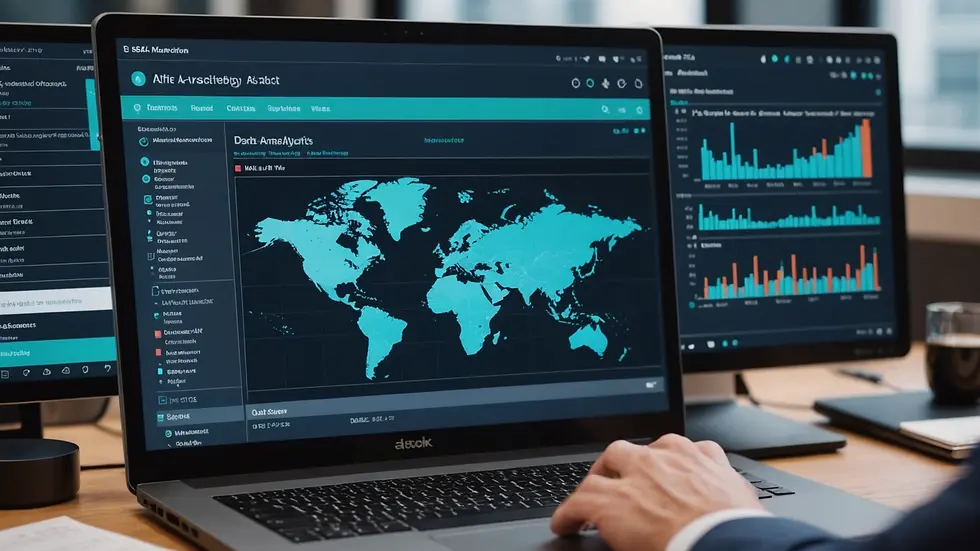Emerging Threat: Is Artificial Intelligence Poised to Make Your Role Obsolete?
- Lindsey Buckingham
- Feb 6
- 4 min read
In the past few years, discussions about Artificial Intelligence (AI) have shifted from distant predictions to urgent concerns. With rapid advancements in AI technology, many are left wondering how it may reshape job markets worldwide. As machines become capable of performing tasks traditionally done by people, workers increasingly worry about their job security. This post explores the relationship between AI and employment, analyzing whether AI poses a real threat to job opportunities or if it signifies a transformative change for human labor.
Understanding the Landscape of AI
Artificial Intelligence includes technologies that perform tasks typically requiring human reasoning. These range from data analysis to intricate decision-making, and AI systems are now embedded in various sectors, including healthcare, manufacturing, finance, and logistics.
For instance, AI’s adoption in healthcare has led to quicker diagnostics. A study showed that AI algorithms could detect certain diseases from medical images with an accuracy of 94%, compared to 86% accuracy by human radiologists. This capability raises important questions about the future of jobs and which roles might be at risk of disappearing.

Current Impact of AI on Jobs
AI is already changing jobs in significant ways, both for better and worse. On one side, AI systems can analyze vast amounts of data more quickly and precisely than humans can. For instance, AI chatbots can address customer queries in seconds, improving overall customer satisfaction rates. According to recent studies, businesses using AI in customer service have reported up to a 30% increase in customer engagement.
However, there's a downside too. As AI becomes more capable, it may eliminate certain jobs entirely. For example, job opportunities in data entry have plummeted, declining by nearly 25% as automation takes over these repetitive tasks. Still, new jobs are emerging in tandem, particularly in areas requiring human creativity and problem-solving.

Industries Most Likely to be Affected
Certain industries are more vulnerable to AI disruption than others. Consider the following:
Manufacturing: The rise of automation has already led to increased efficiency. According to the World Economic Forum, 75 million jobs may be displaced by automation by 2025, primarily in manufacturing sectors.
Customer Service: The use of AI-driven chatbots has decreased the demand for human customer service representatives in many companies. Research indicates that companies using AI can respond to customer inquiries 90% faster.
Transportation: Self-driving technology is rapidly evolving and could disrupt over 3.5 million trucking jobs in the U.S. alone, as reported by the American Trucking Associations.
Healthcare: Tools for predictive analysis are changing roles in medicine. While AI can assist in diagnostics, experts warn that this could change the way medical professionals engage with patients.
Job seekers in these areas must stay informed and adaptive to the evolving landscape.
Strategies for Navigating the Transition
While it is natural to fear redundancy, adapting to the changes AI brings can be beneficial. Here are some actionable strategies to consider:
Continuous Learning: Staying relevant in the job market is crucial. Pursue online courses or certifications that will boost your skills, particularly in areas like creativity, leadership, and communication—all critical skills that AI cannot replicate.
Embrace Technology: Familiarize yourself with AI tools in your field. Learning how to use AI to enhance your work can make you a valuable asset. For example, understanding data analytics can position you as an expert capable of interpreting actionable insights.
Career Flexibility: Be prepared to shift your career focus based on market demands. Diversifying your skill set can open up new opportunities. For instance, transitioning from traditional marketing to digital marketing can lead to more job options as businesses increasingly leverage online platforms.
Networking: Connect with industry professionals to stay updated on trends. Engaging in discussions about the future of work can provide insights on how to adapt your career.
The Future: Collaboration Over Replacement
The conversation about AI and employment should not solely focus on job loss. Rather, it is essential to highlight the potential for collaboration between humans and machines. The most effective workplaces are likely to be those that adopt a partnership approach, leveraging AI to assist human workers rather than replacing them entirely.
AI can handle straightforward tasks, allowing humans to focus on creative challenges and providing exceptional customer experiences. This partnership could enhance productivity, foster innovation, and improve job satisfaction across industries.

Final Thoughts
As the discussion around AI evolves, it is vital to recognize its dual role in displacing and creating job opportunities. While some professions may face challenges, others will emerge for those willing to adapt and embrace change.
Instead of succumbing to anxiety about obsolescence, individuals can take proactive steps to prepare for the future of work. Cultivating a mindset of lifelong learning, welcoming technological advancements, and emphasizing adaptability will help workers thrive in an AI-driven landscape.
The threat of AI replacing jobs is real, but so is the potential for transformation and growth. By staying proactive and prepared, individuals can navigate the uncertainties ahead with confidence.